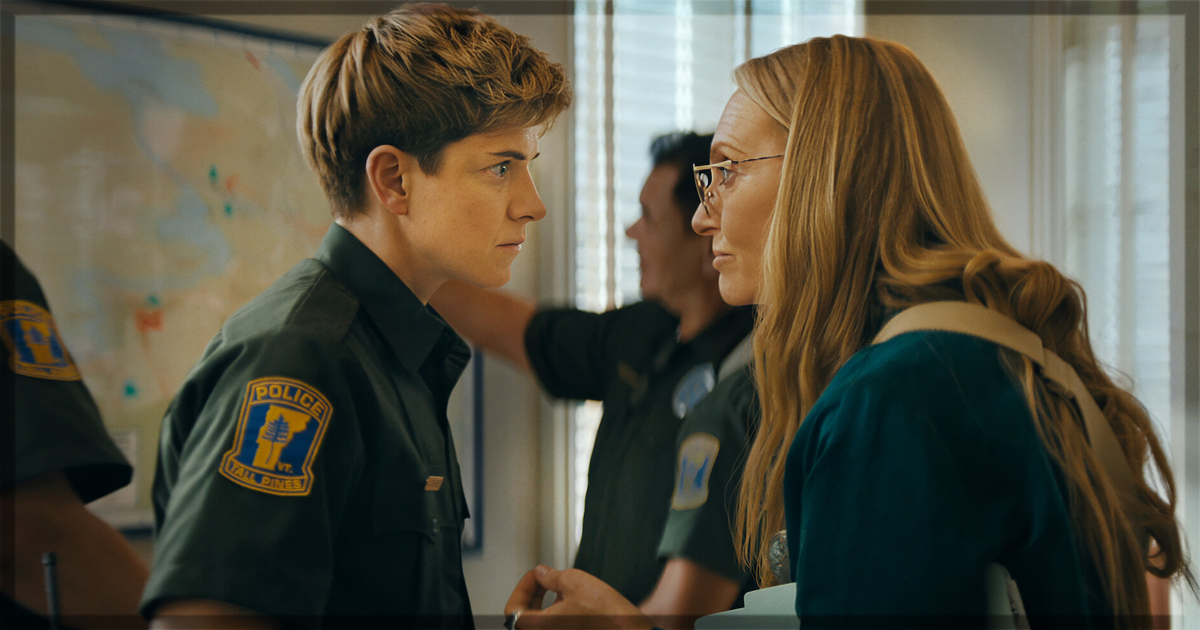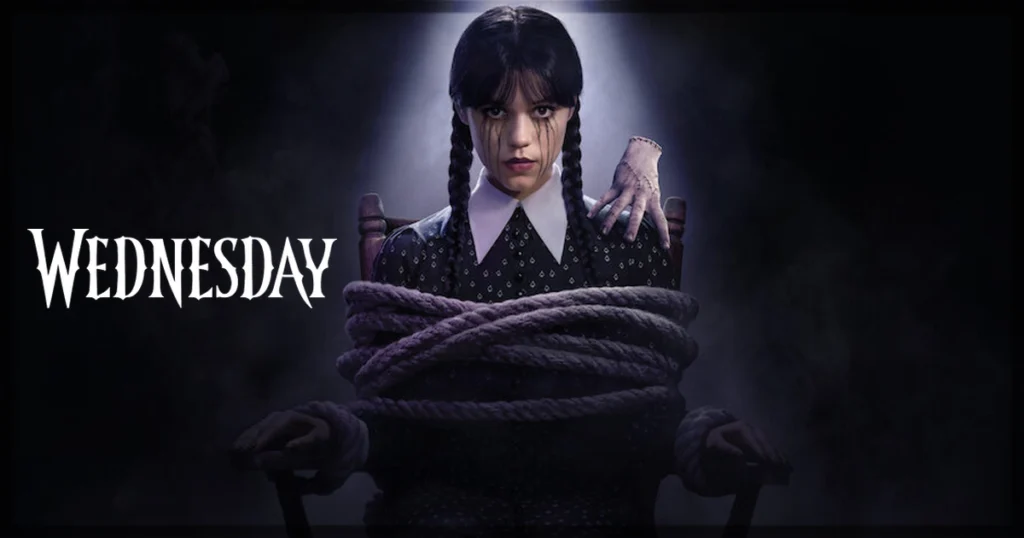Comedian Mae Martin’s (Feel Good) first venture into drama is a confused exploration of a dysfunctional town with a mysterious school. What has the potential to be a Lynchian mystery falls flat as it struggles to combine two perspectives.
Told through two separate viewpoints, Wayward follows cop Alex Dempsey (Martin) and his pregnant wife Laura (Sarah Gadon) as they move from Detroit to Laura’s hometown of Tall Pines in Virginia. The two parallel stories effectively run alongside each other until they struggle to come together in the latter episodes.
The couple is looking for a fresh start to raise their family, and Laura’s fictional hometown looks perfect on paper. Local academy owner and unofficial town leader Evelyn Wade (Toni Collette) even gifts them a house in the country as a welcome present. Evelyn runs a local boarding school for “troubled teens,” and appears as the town’s unelected leader.
Welcome To Tall Pines As Seen From Two POV
Tall Pines has the perfect potential to be a Twin Peaks-like town. It’s too quiet and quaint, and the show instantly sets up how unsettling the space is. This eeriness is confirmed when a kid covered in blood bursts through the forest during Alex’s first shift, having run away from Evelyn’s institute. This encounter forces Alex to look into Evelyn’s operation, even when his colleagues have no interest in uncovering the truth about this isolated school.
The other side of Wayward follows teenage best friends Abbie (Sydney Topliffe) and Leila (Alyvia Alyn Lind). The pair attends a Toronto high school where they spend more time together than studying. They’re not wayward teens per se, just slightly distracted by being teenage girls to worry about academic futures, exams, and going to class. Out of concern for their behaviour, the two girls end up in Tall Pines but don’t intend to stay for long.
The show evenly splits its time between Alex’s investigation and her domestic life with Laura, and the students plotting an escape from their prison-like institute. One thread sees a couple trying to build a life together and find their identity, the other sees young people’s identity erased as they are forced into rigid boxes created by Evelyn. Tonally, it can often feel like two very separate shows are taking place here. One is a more mature investigation with Alex balancing their obsession with the mystery institute and their impending parenthood, and the other is a much younger, teen show, about the kids staying in this institute.
The show falls apart when these two points of view are combined. There is enough intrigue between the two sides of the story when separate, but it never quite works once the threads merge. The mystery reveals itself too soon, so there is nothing left to unfold by the final episode. The last half of the show pulls out some last-minute side plots and reveals of things that didn’t need to be unanswered, making it feel like a chore.
The world of Tall Pines Academy is much better fleshed out than Alex’s life in the small community. This academy, which has hints of One Flew Over a Cuckoo’s Nest to it, features a likable and dislikable cast of youths and counselors. Martin’s writing understands that no institutionalization will stop young people from acting like young people. Even when locked into a prison-like space where every part of their life is micromanaged, they create cliques, form crushes, and bicker.
Abbie and Leila’s friendship never gets lost in this extended supporting cast. They authentically capture the ups and downs of girlhood best friends. You can’t help but root for the duo, despite often acting annoyingly childish. Laura and Alex’s relationship never feels as fleshed out or as real as Leila and Abbie’s, which means sympathy and attention naturally balance one way.
Wayward is a character-driven show that fails to create a believable world for the mystery to unfold in. The town of Tall Pines is severely underused as a character. We don’t see a huge number of places or people outside of the core setting and cast. The mystery may have landed better if the writers spent more time fleshing out the world of Wayward, introducing those who live there, and embracing the weirdness of small towns.
A Wasted Cast You Hope Will Do More
While Wayward is an adequate miniseries, it more than proves Mae Martin’s potential as a serious writer and actor. Alex is a relatable hero, battling their own inadequacy as the only person who finds any of the happenings at Tall Pines strange. Sarah Gadon is more grounded as Laura, a woman who knows all too well the sinister behaviour of her community and the few in power. The students/inmates of The Tall Pine Academy are played by a cast of charismatic young actors, including a standout performance from Isolde Ardies as the utterly dislikable Stacey.
Toni Collette is working on half power as Evelyn, a woman who believes human nature is a curse and punishable offence which must be eliminated from the soul. Collette, a likely main appeal for viewers, is severely underused, spending much of the series in the background of proceedings. Even when her character comes to the forefront of the plot in the final episodes, it’s far too restrained. You’ll wait in anticipation for her to unleash the type of performance she delivered in Hereditary, but it never comes.
Wayward is generally too restrained and feels like it’s missing something. Martin and co-creator Ryan Scott have all the details of this curious village but fails to paint the entire picture. The premise is eery and the atmosphere of paranoia chilling but it’s nothing more than a vibe. Anyone hoping for a Twin Peaks-esque payoff from the creepy small town in America set-up needs to prepare for disappointment.
The Netflix drama sits in the underwhelming space between being too unorthodox to be a standard streaming thriller and not weird enough to fully explore Evelyn’s terrifying ways. The final two episodes, which unlock Evelyn’s unusual therapy style, have the potential to unleash the weird yet stray away from eccentricities.
Wayward has a good premise that never quite pays off. The story explores timely themes like cult-like behaviour hidden as community, the tough transition from childhood to adulthood, and the perils of isolation in small-town America. Sadly, the show slowly moves through lacklustre plotting, especially regarding Alex and Laura, and Laura’s past in the town. You may struggle to care about the conclusion by the time the finale episode rolls in.
All episodes of Wayward were released on Netflix on September 25.
Learn more about the show at the Netflix site for the title.
You might also like…


